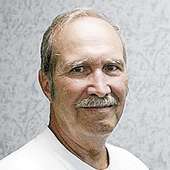- Missouri campgrounds resurgence (5/30/20)
- August a fantastic month for catfishing (8/11/18)
- Kayaking, canoeing good way to spend hot summer days (7/27/18)
- Hot weather means hot catfishing (7/7/18)
- Boat buyers have abundant options (6/16/18)
- Warm weather invites camping (6/9/18)
- Topwater fishing is a blast (6/2/18)
Attitude is important in firearm safety
Saturday, January 11, 2014
As a young man entered the classroom for a hunter-safety class, he was overheard to say, "I really don't need this, I already know about guns and hunting."
Attitude is very important in firearm safety, as the instructor said, "Someone with a poor attitude about firearm safety is asking for trouble. A person might think that they know about guns and hunting, but even with all this knowledge, can't prevent an accident."
The two instructors just finished one of the many classes on hunter safety they had taught, along with conservation agents, in recent years.
One agent said, "I have worked three facilities where kids were involved in accidents with firearms. I take these classes very seriously and so should the students."
These instructors across the state try to instill a sense of good attitude to their students toward gun safety. You can be sure you will feel better while hunting with that person.
In looking over the participants in the class, a cross section of people could be seen. There were youngsters from 11 years old to several veteran hunters in their 60s, girls and women and also, a wide range of firearms knowledge among them.
Although a hunter safety certificate is needed for anyone in Missouri that was born after Jan. 1, 1967, there were many in attendance who were born prior to that date, but wanted to learn more about hunting safety, or needed the certificate to purchase a hunting permit in another state.
One parent said her son had received a .22 rifle as a Christmas present and she thought it would give her piece of mind if he had taken the course, even if he didn't hunt.
The hunter safety class addresses more than gun safety. It also teaches respect for life, the land and the rights of others, as well as outdoor skills and decision-making.
By actively participating in the class, youths conduct in-depth analysis of real-life events that have resulted in tragedy. They learn to make the right decisions after observing the consequences of those who are wrong.
The hunter safety classes teach all students to consider every firearm as loaded. The instructors instill in both parents and youngsters minds the unquestionable rules of safe firearm use, handling and storage.
More parents are supporting the program because of their concerns for the safety, education and future of their children. Most of the parents who disapproved of hunting did so because they feared the danger posed by the use of firearms.
Although not every child will hunt, handle or even own a firearm, how can a parent shield a child against exposure to firearms, all the time?
Situations may arise during a child's life that are beyond a parent's control, but an awareness of firearm safety could mean the difference between life and death. These hunter safety classes can ease a parent's fear.
The student manual states, in the beginning, you are never too old or too young to learn firearm safety, even if you haven't developed an interest in firearms.
The chance of encountering a firearm is great. They are kept in many homes for protection, hunting, other sporting purposes, or collector's items.
If you know how to safely handle firearms, their sudden discovery should be no problem or threat. After learning firearm safety, you should be able to recognize when a firearm is being used or handled in an unsafe manner that might result in an accident.
No one can say how many accidents with firearms may have been prevented by the hunter safety program, but if it were just one, that would be one less family and community affected by the misuse of a firearm.
Since the program started, it has received praise from parents, hunters and educators.
As one of the participants said, "I am here to try to be a better hunter and conservationist, and how to learn how to do the right thing when I go into the fields and woods. I hope these other students feel the same because chances are, I will run into some of them while hunting. It would make me feel better if I knew they knew what they are doing."
Another student nearby said, "Amen to that."
Back in 2006, the 1 millionth hunter education graduate was certified. Sam Enright, St. Louis, became Missouri's 1 millionth hunter education graduate after he signed up for a hunter safety class, where he scored a 96 percent on the final exam. He only missed one question.
Enright counts the knowledge he gained as the most important thing he learned -- to always be safe.
"I learned about stuff I never knew before," he said.
After the Conservation Department began offering the program on a voluntary basis in 1957, the hunter safety program became mandatory in 1988. In the first year, more than 64,000 Missourians took the course.
The program wouldn't work without the involvement of more than 2,000 instructors who donate their time and energy to ensure that hunting remains safe and ethical.
Deer season ends with the late youth portion
Not surprisingly, considering the weather, the harvest in the late youth portion of the 2013-14 was down 46 percent from the 2012-13 season. The young hunters took 1,183 deer, which made the total firearm season harvest 200,280, a decrease of 22 percent from the previous year.

